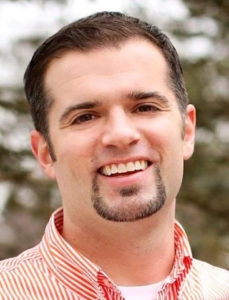Author, speaker and Baptist minister Alan Rudnick said he’s considered writing a column asking if God sent the coronavirus to plague humankind.
“And, of course I would end by saying ‘no,’” said Rudnick, senior minister-elect at DeWitt Community Church in Syracuse, N.Y.
But a substantial minority of Americans, at 35%, do believe the coronavirus was sent by God to teach humanity a lesson, the Pew Research Center found in an October survey titled “What Lessons Do Americans See for Humanity in the Pandemic?”

Alan Rudnick
That percentage was to be expected, Rudnick said. “The 35% roughly matches up with other surveys about people who identify as evangelical Christian. It aligns with the very hardline community in our country.”
What seems to be out of alignment is that the whole pandemic-as-wrath hasn’t been more prevalent since it began. Rudnick noted such rhetoric has come nowhere near the levels it did following 9-11, when Jerry Falwell and other white evangelical leaders claimed the terror attacks resulted from the nation’s tolerance for homosexuality and abortion.
Rudnick has a theory about why that may be: conservative Christians are preoccupied with politics. “If you would take Donald Trump and the Supreme Court out of it, there would be a lot of God talk around the pandemic. The God-talk bandwidth is getting consumed by the election cycle.”
But conservative evangelicals aren’t the only ones perceiving some kind of meaning from COVID-19. According to Pew, 37% of American adults see lessons in the pandemic without attributing them to a higher power.
Altogether, 86% say there is “some kind of lesson or set of lessons for humankind from the pandemic,” the survey found. Only 13% said “there is no lesson to be learned” from the coronavirus outbreak, which has killed about 228,000 in the United States and 1.17 million worldwide.
The findings illuminate the profound effect the pandemic has had on Americans.
The findings illuminate the profound effect the pandemic has had on Americans, Rudnick said. “It speaks to the fact that the pandemic has helped us rethink what’s really important.”
Pew said more than 3,700 of its survey respondents provided written answers to explain their beliefs about the lessons inherent in the coronavirus outbreak. They covered topics ranging from the practical (the need to wear masks), the personal (the importance of spending time with family), society (adopting universal health care), racial disparities, protecting the environment and ending political division.
A 46-year-old man told Pew the pandemic has disclosed media and political corruption. “Humankind absolutely cannot trust their government officials to do the right thing. This virus is perpetrated by the left-wing media and the Democrat Party to remove Trump from office.”
A woman in her 60s said Donald Trump’s handling of the pandemic has exposed the dangerous incompetence of the administration. “Trump is going to kill us if we don’t vote him out of office.”
Some expressed concern about underpaid essential workers whose jobs the government considers too important to send home to avoid exposure. “Capitalism has caused us to develop an unsustainable and inhumane system. We should take this opportunity to restructure our society so that people can spend more time with family and so that there are appropriate safety nets in place to protect people when disaster strikes,” one respondent said.
“And for others, the pandemic is an expression of the wrath of God.”
And for others, the pandemic is an expression of the wrath of God.
“It is biblical prophecy playing out,” a 55-year-old woman told Pew. “This pandemic as well as other world events are a wakeup call and confirmation that the rapture is at hand as prophesied in the Book of Revelation.”
A 58-year-old man said COVID-19 is a wake-up call about sinful lifestyles. “God is telling us that we need to change our ways or he will send a virus that will make us be alone so that we have time to think about how we live our lives. God did not create mankind to live as we do. And he is not going to let this virus end until he knows that we have learned our lesson.”
Other believers saw a different lesson, such as this: “Use this time to know God better. Receive as a gift this time of less activity and immerse yourself in quiet contemplation for personal spiritual growth. Develop gratitude in the midst of the current situation. Pray for the sick and unemployed.”
Rudnick said that he, too, sees lessons in the pandemic, including a calling to take a Good Samaritan approach to treating essential workers with fairness and compassion. “The lesson is that we as a culture are devaluing the life of the stranger, the sojourner. These people who are working under very difficult conditions may be economically disabled on the side of the economic road.”


